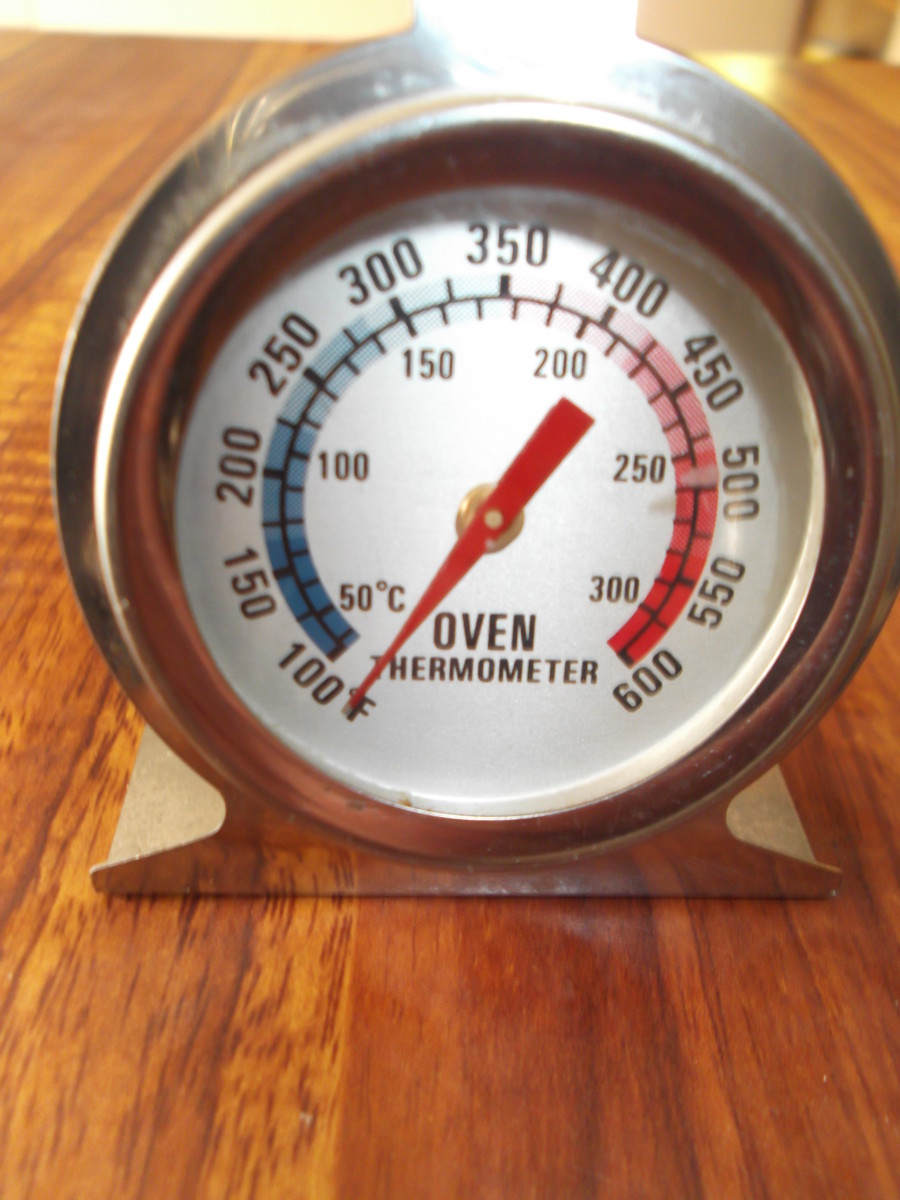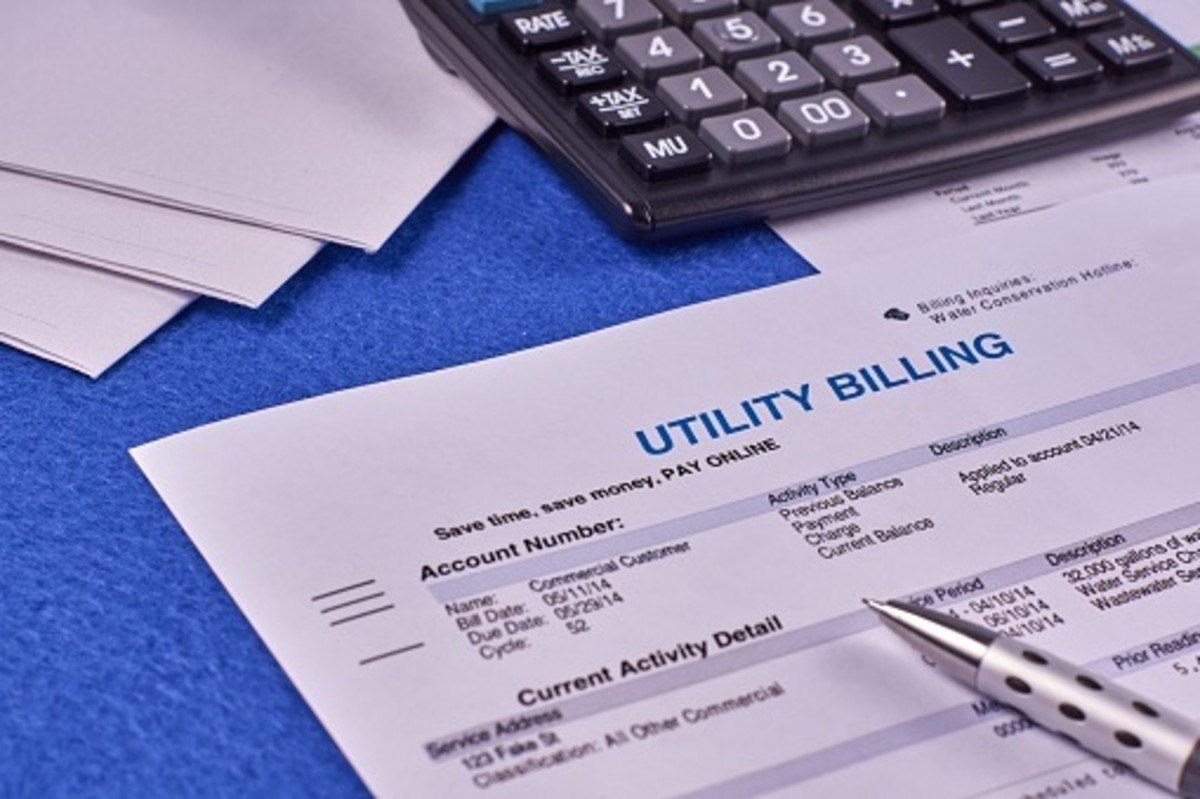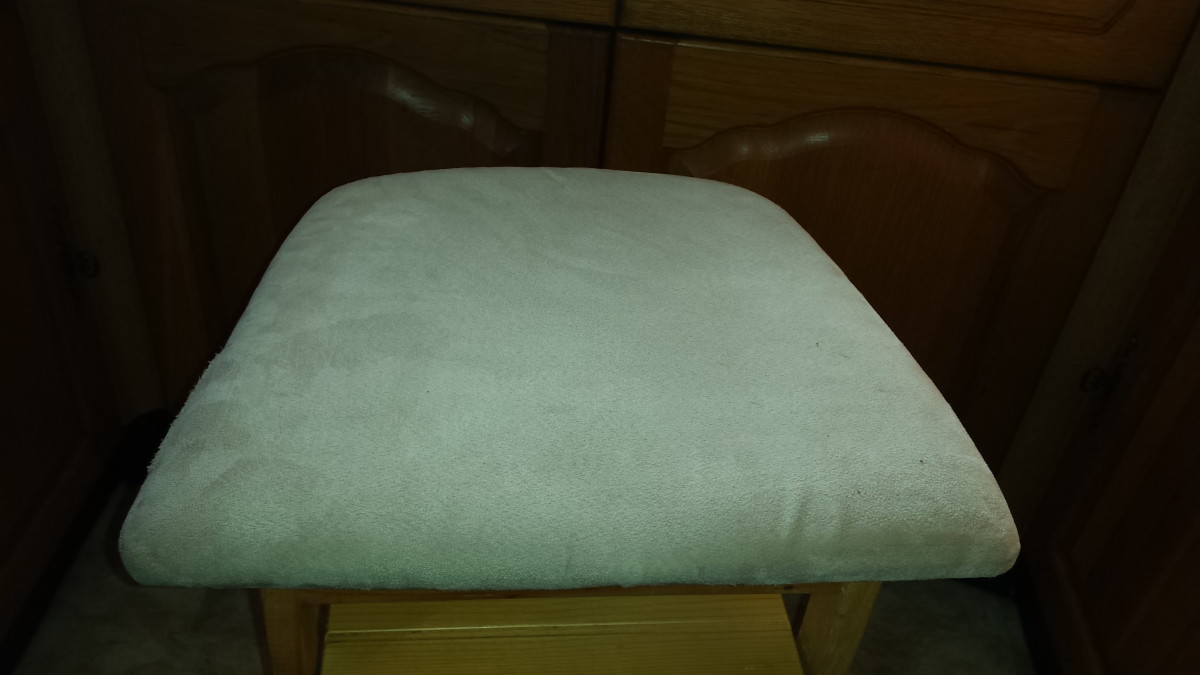- HubPages»
- Personal Finance»
- Frugal Living»
- Household Expenses
How to Save Money by Reducing Your Fuel and Energy Bills
Keeping Warm in the Snow and ice.
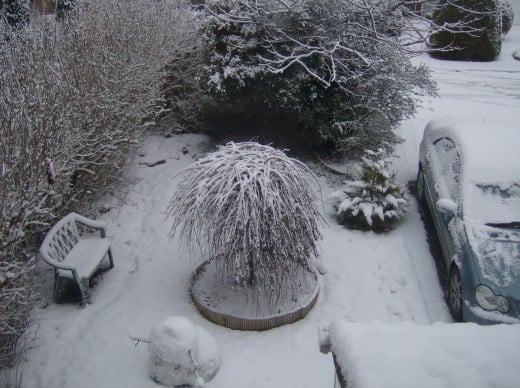
How to Save Money on Your Energy Bills.
We all want to save money but most people also want to know how to cut the amount of energy they use, not just to save that all important money on the bills but because they know that the planet has a limited amount of fossil fuel. And we all know that we can't just carry on using up the Earth and its precious resources the way we are. What can we really do, as individuals, to help solve the problem?
As winter approaches temperatures plummet and fuel costs skyrocket what can you do to reduce your fuel bills? Every penny counts these days and saving money, especially, on fuel bills has never been more important. There are a number of ways to economize, save money on heating, reduce your fuel bills and help to save the planet, most of which cost nothing or next to nothing to implement. Don't wait until you are sitting in your home shivering, the best time to make your house draught proof and energy efficient is now. All it takes is a little time and effort. These are proven tips that really do work.
Low Energy Bulbs.
If you haven’t already done so then switch all of your light bulbs to low energy ones.They do look a little ugly but you can always buy deep shades to cover the bulbs.
As soon as the sun starts to go down pull your curtains or drapes. A pair of curtains, even a relatively thin pair, can really help to keep the heat in and the cold out and save you money. Why not think about investing in some thermal curtain linings for the most used rooms in the house. They are easy to fit and will pay for themselves in a year or two. Alternatively, think about lining the curtains you already have, you can use old bed sheets or cheap calico. Take down your curtains, measure the lining material to fit the back of the curtains with an inch border. Pin in place and stitch the two together. You don't need to be a master with a sewing machine to do this, the lining material doesn't really show from the outside when the curtains are drawn in daylight and at night it's too dark to see them!
Make sure that your hot water tank is well covered, if the tank jacket seems a little thin you don't need to replace it with a new one just put an old, thick blanket over the tank as well. You will be surprised just how much money and energy it can save.
Energy Efficient Electrical Appliances.
When replacing electrical items such as cookers, fridges and washing machines always go for the most energy-efficient ones that you can afford, they will save you money and save the environment too. Using a cooler washing machine cycle than you would normally will save quite a bit of money over a year, modern washing powers are tailor-made for use at lower temperatures. If you only have a small amount of washing to do, why not think about doing it the old-fashioned way? A washing up bowl full of hot soapy water is enough to wash a dozen or more items.
Drying washing in a tumble dryer can use a surprising amount of energy if you are lucky enough to live somewhere with a yard or garden then outside line drying is best. There is nothing like the smell of freshly washed clothes that have been allowed to dry in the fresh air. Or use a drying rack in a warm kitchen or a spare room, it might take a little longer to dry but it costs nothing.
If you live in a large house shut up the rooms that you rarely use and turn the heating off in them. If you always eat in the kitchen or on your lap in front of the TV and let's face it many of us do, even if we have a nice dining room, then close up the dining room. Shut the spare bedrooms, drain the radiators and forget about them until spring. Use your thermostat, it is much better at judging the temperature than you are, you can always turn it up a bit if you feel cold to give the heating a boost.
Turn off all electrical appliances that you would normally leave on standby. Televisions and DVD players use a surprising amount of energy on standby. Get in the habit of turning lights off as you leave a room. Only boil just as much water as you are going to use in a kettle. Fix any leaking hot water taps and lag all of your water pipes. Never run a washing machine or dishwasher unless it is full. Check that your hot water isn’t too hot, not only can too hot tap water be very dangerous but it is also very expensive.
Dry Pine cones Burn Really Well.
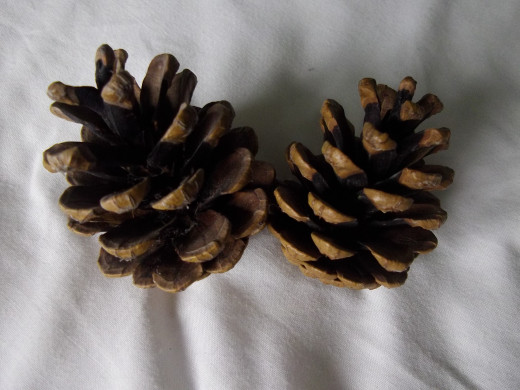
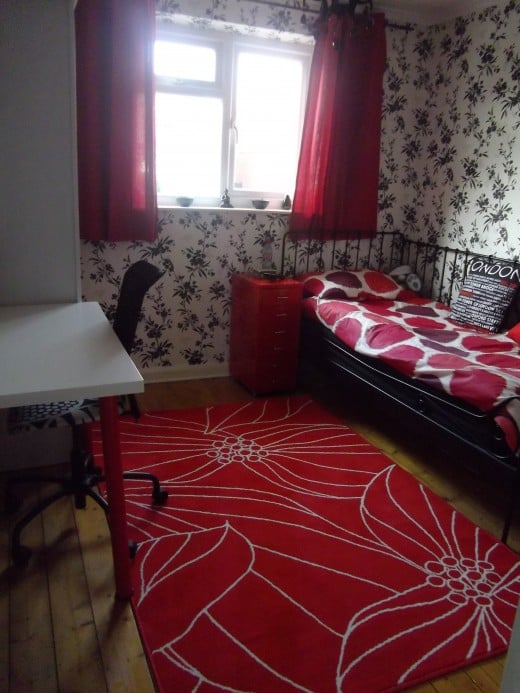
How can you Heat Your Home for Free?
If you are lucky enough to live in a house with a working fireplace then gather free wood and burn that, or why not have a go at making paper logs from your old newspapers.
There are some good little machines for making paper logs for sale.
If you are going to gather free wood then always remember to ask permission from the landowner first, or chose common land. Laws concerning wood gathering varies from country to country so check locally.
I know that where I live it is okay to gather dead wood that has fallen onto the forest floor and that there is usually more than enough of that to go round.
Old pine-cones also burn really well, make sure that they are very dry before trying to put them on the fire.
If you think that they are still a little wet, then wrap them in some old newspaper and place than in the bottom of your airing cupboard or by the fire or heater.
You can also put empty tin cans on the fire, they heat up quickly and stay hot for ages, simply put them in the recycling when the fire has died down and they are cool enough to handle.
Put down thick rugs on cold wooden or tile floors to help conserve heat and to give your rooms a cosier feel.
Wrap up Warm to Save Energy and Money.
Wrap up warm in the winter, even inside the house, thin layers are better than one big thick one. Have hot meals and frequent hot drinks.
Use a nice warm throw or blanket to snuggle under. Wearing a hat indoors might seem a bit silly but it can be a lifesaver, especially for older people.
As we age we feel the cold more and the danger of suffering from hypothermia is all too real.
Wear bed socks to bed, having your feet nice and warm makes your whole body feel warmer and you won’t need to have the heating turned up quite so high at night.
Remember not to turn the heating off completely at night if it is going to be very cold, frozen burst pipes will cost a lot more to repair than leaving the heating on low.
Good Insulation is key.
Make sure that your loft or attic space is well insulated and that the roof is in good repair. Remember that heat rises, that’s fine if it’s heating the bedrooms but not so fine if it’s escaping through the roof. Loft insulation is readily available from DIY stores, remember if you are going to do the job yourself that you will need insulated gloves and a face mask too.
Use a draft protector along the bottom of the doors, either buy one or make one yourself. It doesn’t have to be anything fancy, a rolled up towel is just as good as anything else for stopping the cold air from coming in and the hot air from getting out. This is important even if you think your doors fit really well, cold air will always find the smallest gap to worm its way through. Remember to keep the doors closed as much as possible.
Think about switching energy provider. Many of the energy companies will offer you good deals as an incentive to switch users. Shop around and don’t be afraid to ask them what kind of deal they can offer you, they need you more than you need them.
If you only have single glass windows think about investing in double glazed ones, you don’t need to replace the whole thing you can always buy some secondary glazed units and install them yourself. At the very least you should check for gaps in the window frame sealant and if necessary fill them with silicone sealant. A good way to do this is to drop a feather from the top of the window on the inside, see if it blows away or falls in a straight line. You can also buy heat saving film to cover the windows with, it works quite well.
How to Insulate an Outside Wall.
Think about the outside of your home too, if you have a garden or yard consider planting evergreen trees or bushes against a north wall, it really does make a difference. Chose fast-growing trees but be careful about the type of trees or bushes you plant.
Take advice from a professional concerning just how big the roots will get, the last thing you want is to have the roots undermine your home.If you don't want to plant close to the house wall then think about putting up some screening instead. Bamboo and brushwood screens provide good insulation and they look good too.
Keep an eye on elderly neighbours, keep pets indoors at night and don’t forget the wild birds. Spend a little of the money you’ve saved on your energy bills to buy some wild bird food like fat balls or strings of nuts. Most of all keep warm and safe in the wintertime.
Follow these simple proven tips and you can save money and energy and help to save the planet too.
Do you think that it is important to try to conserve energy and save money on your bills?
© 2010 Galaxy Harvey

